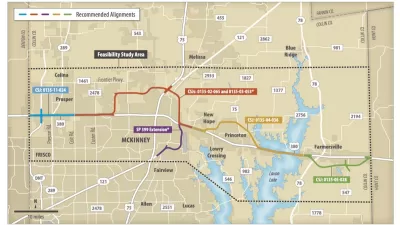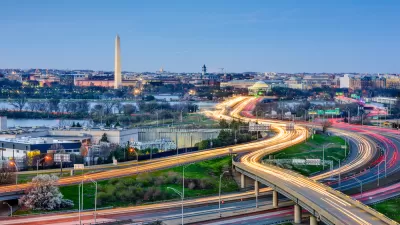Tempe planners are preparing a General Plan update scheduled for voter approval in March 2024.

Tempe, Arizona is expecting to grow in population by 38% by 2060—from 167,400 residents in 2022 to 269,700. Neighboring cities are expecting similar rates of growth of the time period, too, with Neighboring cities show projected increases as well, with Phoenix expecting a 28% increase Mesa increasing by 18%.
Those population estimates figure prominently in Tempe’s ongoing General Plan update process. Voters are expected to consider the Tempe Tomorrow: General Plan 2050 in March 2040.
A paywalled article by Caroline Yu for the Daily Independent documents some of the big issues at play for the General Plan process, including the aforementioned population growth, as well as transportation projects, economic resilience, and water conservation.
Here is a sample of Yu’s report on these issues:
- On transportation: “But City Traffic Engineer Cathy Hollow says it’s difficult to give an exact answer about how transportation will evolve over the next 30 years, especially as the city just begins to update its transportation plan to guide the city’s transportation projects.”
- On economic resilience: “Anticipating an increase in its workforce and general population, Tempe doesn’t expect to have issues with residents finding jobs. Still, its continued struggle with housing could prevent people from living and working in the city.”
- On water conservation: “Going forward, the city is investing millions into water resources and infrastructure along with making the most of its existing water portfolio. It’s also in the process of rehabilitating the Kyrene Water Reclamation Plant to increase the reuse of reclaimed water.”
FULL STORY: Tempe’s collaborative plan for a growing population

Maui's Vacation Rental Debate Turns Ugly
Verbal attacks, misinformation campaigns and fistfights plague a high-stakes debate to convert thousands of vacation rentals into long-term housing.

Planetizen Federal Action Tracker
A weekly monitor of how Trump’s orders and actions are impacting planners and planning in America.

San Francisco Suspends Traffic Calming Amidst Record Deaths
Citing “a challenging fiscal landscape,” the city will cease the program on the heels of 42 traffic deaths, including 24 pedestrians.

Defunct Pittsburgh Power Plant to Become Residential Tower
A decommissioned steam heat plant will be redeveloped into almost 100 affordable housing units.

Trump Prompts Restructuring of Transportation Research Board in “Unprecedented Overreach”
The TRB has eliminated more than half of its committees including those focused on climate, equity, and cities.

Amtrak Rolls Out New Orleans to Alabama “Mardi Gras” Train
The new service will operate morning and evening departures between Mobile and New Orleans.
Urban Design for Planners 1: Software Tools
This six-course series explores essential urban design concepts using open source software and equips planners with the tools they need to participate fully in the urban design process.
Planning for Universal Design
Learn the tools for implementing Universal Design in planning regulations.
Heyer Gruel & Associates PA
JM Goldson LLC
Custer County Colorado
City of Camden Redevelopment Agency
City of Astoria
Transportation Research & Education Center (TREC) at Portland State University
Jefferson Parish Government
Camden Redevelopment Agency
City of Claremont





























